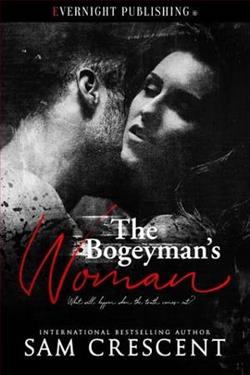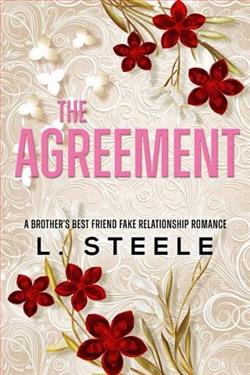Page 2 of South of Nowhere
Take. Your. Time….
The fifty-year-old, moderately and not irrevocably rotund, was smoking and would remove the Marlboro long enough to sing along with an off-key but robust voice. He would also occasionally glance up at the low clouds as if that would give him some indication of when the downpour would let up.
What a storm! This part of the state—east central—had been in the grip of a drought for the better part of two years. Not good for the number one producer of fruits and vegetables in the country. Would this cure it? He didn’t think so. He’d heard that downpours made only a small dent in solving the problem, as the water tended to vanish into places where it wasn’t particularly helpful.
On the seat beside him was a McDonald’s bag containing three basic Egg McMuffins. He never went for the fancy things. Simple was better. Normally he had four but was trying to cut down, and was exercising his willpower, resolving not to start on the first until he hit the city limits of Fort Pleasant, the Olechu County seat, about fifteen miles ahead.
Though maybe he would celebrate getting off this damn mud slick ten stories above Hinowah and eat half a sandwich. As if having to wrestle the wheel in the muck counted as exercise.
Ah, the games we play…
Bell’s thoughts dipped to the job he was on his way to, plaster-boarding one of the multigazillion-dollar houses in a new development west of the city. How the hell people could afford them, well, that was beyond him. Maybe some of the new companies moving here from the Bay Area and Sacramento. Then his attention faltered and he was drawn to the rushing water. The Never Summer was showing some balls today. Normally it was a modest stream pacing along a rocky bottom, some feet below the road he was presently on. You could hike along the bed all the way to Fort Pleasant and never dampen a toe.
Tense from the driving, Bell stretched and momentarily laid his right arm across the passenger seatback.
Thinking of a few years ago, him and Nancy, then his bride of six months, parked in this same set of wheels, watching the sunset behind Gold Claim Hills. She’d nestled against him, and his arm, on the seat, dropped to her shoulders and he pulled her close. They’d kissed. She’d said, “You know one thing I never heard of?”
“What’s that?”
“Making a baby in a pickup truck.”
He hadn’t heard of that either. But they both decided it was a topic that deserved more consideration.
The recollection—and the smile it engendered—occurred at precisely 6:14.
—
The third vehicle on the levee road was a white Chevrolet Suburban, driven by George Garvey, who was glancing at the water cascading out of the bed of the pickup truck in front of him. It never occurred—as he’d never owned one—that pickups would need drainage. A day like this, they would fill up fast with what was probably a ton of water.
He mentioned this to his wife, Sonja, who looked up from her knitting.
“Hm.”
George was owner and operator of a small business that his great-great-grandfather had created and had remained in the family, nonstop, for more than a hundred years. He was the front man and manager; Sonja ran the business office. As between the two, she was the silent type.
George’s eyes strayed from the flooded pickup truck to the dark gray sky, the clouds speeding west to east.Scudding, he thought, was the word. They’d had the option of taking interstates and four lanes from Sonja’s mom and dad to the 5 and then south. But a family conference had resulted in the decision to take this, a more picturesque, route. He negotiated with Google Maps and after some minutes—during which the algorithm seemed to ask, “Are you sure?”—they got these directions.
His wife said, “That town we passed, ten miles or so. Hibbing. Wasn’t there another one? That somebody famous came from?”
“Somebody?” George asked as if it were an insult that she didn’t know instantly. “Bob Dylan.”
“Right.” Back to knitting and purling.
George called to the most musical of the Garveys, “Kim. Who’s Bob Dylan?”
“Who?” asked seventeen-year-old Kimberly. The blonde more cute than exotic, to Garvey’s immense relief, was examining a chipped nail. Neither she nor her friends could keep all ten tips in pristine polish for more than a few hours.
George—who had been a folk singer years ago—said, “The best songwriter who ever lived.”
“Not than Drake or Taylor.” Maybe a question, maybe a statement.
“Hands down better than them.”
“What does that mean?” Kim asked with teenage exasperation.
“Yes, better than them.”
No response.















